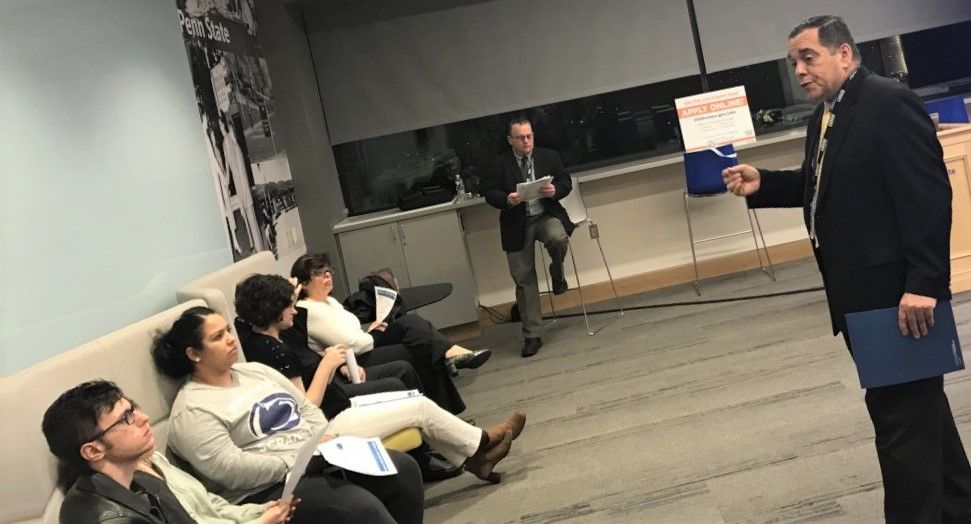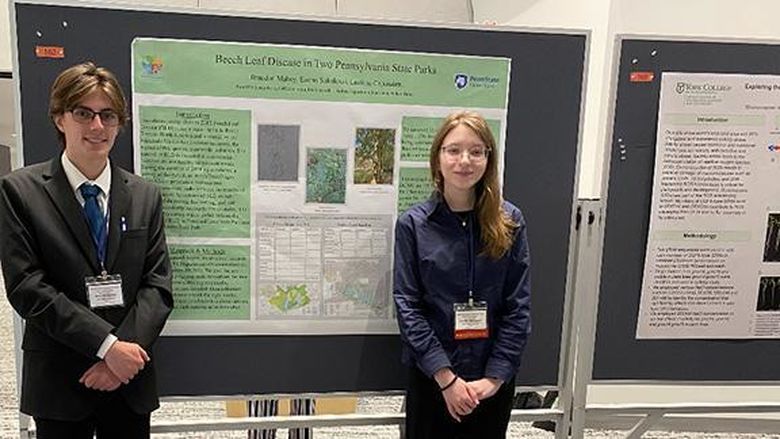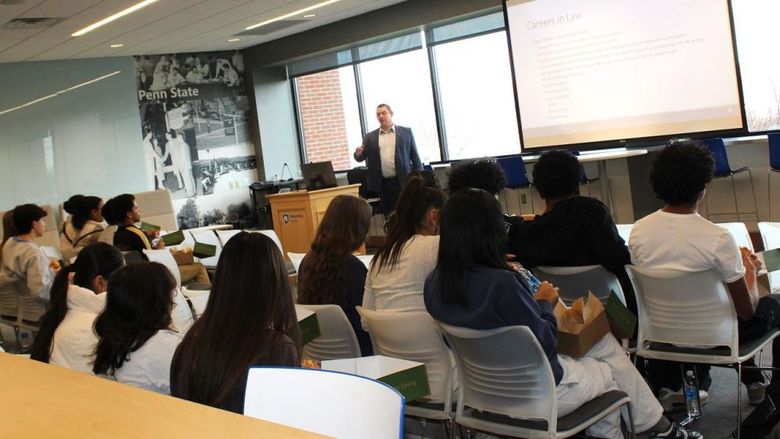
Pedro Anes, local partnership specialist for the U.S. Census Bureau, makes a point during the recent 2020 Census information session at Penn State Scranton.
DUNMORE, Pa. — Two local representatives for the 2020 Census recently visited Penn State Scranton to discuss the myriad ways in which the campus community can help ensure optimal participation in the country’s once-every-decade population count.
The campus’ Community Events Series hosted the educational program, “The Urgency of Now: What the Penn State Community Should Know About the 2020 Census,” in the Study Learning Center’s Sherbine Lounge.
At the event, Pedro L. Anes and Patrick J. Tigue, local partnership specialists for the U.S. Census Bureau, educated students, staff and faculty on the ins and outs of the census and its many ramifications for the Scranton area. Anes and Tigue were invited to the campus by Chancellor Marwan Wafa, who also was in attendance.
Anes repeatedly stressed how critical it is for the Scranton area to get an accurate count, giving the crowd a mantra of sorts to remember: “The census counts every person living in the U.S. once, only once, and in the right place.”
“When we say everyone, we mean everyone,” he said. “Legal status has no bearing.”
Among other things, the census is used to determine the number of seats a state gets in the U.S. House of Representatives.
In addition, the census has significant economic implications. All told, the federal government will distribute about $675 billion to the states based on per-capita response to the census. That funding will trickle down to the Scranton area and can be used to fund a number of things, including Pell Grants, schools, hospitals, roads and social service programs. Locally, it could equate to as much as $2,100 per person, Anes said.
“There is a definite economic benefit to responding to the census,” he said. “If everyone does their fair share by responding, you get your fair share of funding in return.”
That makes it incumbent to motivate people to respond, especially since the Scranton area is projected to have a 25% to 29% non-response to the census. Much of that has to do with fear, particularly among the immigrant community, Anes said, noting respondents’ privacy is protected for 70 years and their information cannot be shared with law enforcement.
Anes said the Penn State community can do plenty to help. Faculty members can fold census education into their curriculum, and the campus could set up a dedicated computer terminal where people can respond to the 10-question census survey online, which for the first time is an option.
Meanwhile, the U.S. Census Bureau is looking to hire part-time enumerators (i.e. census takers) to conduct interviews and collect data. Anes said it’s a great temporary job for college students, considering it pays more than $16 an hour and allows them to get into the federal government’s hiring database.
That could lead to other government opportunities down the road, said Anes, noting job applications can be filled out at USAJobs.gov.
“We need you, the entire campus community, to help be that voice for the community,” Anes said. “It is extremely urgent that we get the message out.”
For more information on the census, visit 2020census.gov.





